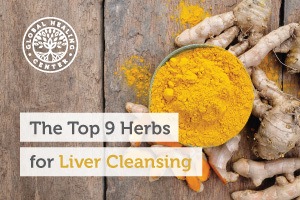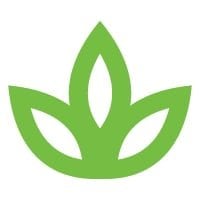
Imagine a fish tank with a motorized water filter. If the filter is clogged with toxins from the tank, the entire tank becomes filled with the same contaminants. In our body system, the filter is your liver, the tank is your body, and the fish that has to live in it is you. Thankfully, a number of herbs for liver cleansing do exist. But first, let's examine the role of the liver in detoxification a bit further.
The liver is the primary organ responsible for expelling and breaking down toxins entering the body. In particular, it produces bile, a detoxifying agent metabolically indispensable in breaking down fats from food. Even traditional medical doctors are fully aware of just how important the health of your liver plays in the outcome of your overall health.
Dr. Karl Maret, M.D.“The proper functioning of the eyes, the heart, the brain, the gonads, the joints, and the kidneys, are all dependent on good liver activity...If the liver is impaired from constructing even one of the thousands of enzyme systems the body requires, there is an impairment in overall body function and a resultant greater metabolic stress on the individual.”
The Top 9 Herbs for Liver Cleansing
There are many herbs that can help with liver cleansing. Here are the top 9 herbs I use and recommend:
- Borotutu Bark
- Milk Thistle Seed
- Chanca Piedra
- Greater Celandine
- Chicory Root
- Dandelion Root
- Organic Turmeric
- Peppermint
- Organic Yellow Dock Root
1. Borotutu Bark
Borotutu bark is by far one of the most powerful substances when it comes to liver cleansing and digestive system support. It has even shown promise for biliary colic and jaundice. This herb contains powerful antioxidants which are known to help protect your liver cells from serious damage.[1, 2, 3]
2. Milk Thistle Seed
Milk thistle has been used for over two thousand years due to its remarkable effects on the liver and gallbladder. Galen and Pliny, the ancient philosophers, recognized and used the power of milk thistle for liver cleansing and support. Milk thistle helps with the detoxification of poisons such as alcohol, regeneration of damaged liver tissue, stimulation of bile production, and digestion.[4, 5]
3. Chanca Piedra
The indigenous people of the Amazon have used chanca piedra (Phyllanthus niruri) for centuries to promote the body's natural elimination of liver, gallbladder, and kidney stones. It also stimulates the liver to purge itself of harmful toxins and foreign particles. Chanca piedra soothes the liver, boosts bile production, and may inhibit the formation of calcified stones in the body.[6, 7, 8, 9]
4. Greater Celandine
The ancient Greeks and Romans considered celandine one of the most powerful liver cleansing herbs. Maurice Mességué, the famous French herbalist, used greater celandine for all liver concerns. Celandine stimulates enzyme production from the pancreas, helps the liver eliminate foreign particles, stimulates the production of bile, helps relieve gallbladder spasms and improves a sluggish liver.[10]
5. Chicory Root
Known for its vibrant blue flowers, chicory is also a medicinal herb celebrated for its ability to help cleanse the liver. Ancient Roman, Persian, Arabian, and Indian physicians used chicory leaves and root to aid against a slew of liver ailments including jaundice, gallbladder and liver stones, urinary stones, constipation, indigestion, depression, and headaches.[11, 12]
6. Dandelion Root
This humble weed, often disliked by suburban lawn lovers, is a liver cleanser that has been celebrated throughout the ages. Dandelion root stimulates bile flow from the liver and is often used by herbalists to help resist undesirable liver conditions, including fatty liver, cirrhosis, estrogen dominance, and even acne.[13, 14, 15, 16, 17]
7. Organic Turmeric
This yellow root, a cousin of ginger, is a powerful liver protector and even liver cell regenerator. It not only helps stimulate enzymes responsible for flushing out toxins from the body, but turmeric is also capable of combating the effects of certain carcinogenic substances.[18, 19]
8. Peppermint
Peppermint isn’t just for fresh breath. This herb stimulates bile flow and relaxes bile ducts, helping to break down fats. It also helps reduce bad cholesterol, which makes the liver’s job of filtering toxins easier. Peppermint also inhibits blockages in the kidney and gallbladder and calms the stomach for optimal digestion.[20, 21]
9. Organic Yellow Dock Root
This herb is known as a blood purifier and commonly used to cleanse toxins from the body. Yellow dock helps break down fatty foods by stimulating bile production, enhancing normal liver detoxification, improving the flow of digestive juices, helping the liver eliminate toxins, and has mild diuretic effects to help flush out harmful substances. It also helps reduce irritation of the liver and digestive system.[22, 23, 24]
Liver Cleanse Herb Stacking
When you combine some or all of these herbs, you can get the benefits of all of them. Global Healing's Liver Health combines several of these powerful herbs into one liver support formula.
Liver Health naturally detoxifies, flushes, and purges the liver of fatty deposits, build-up, and other impurities. If you need advanced herbal support for your liver, consider this enhanced Raw Herbal Extract™ today!
Have you tried any of these herbs for liver support? Share your experiences below!
References (24)
- Presber W, et al. [The effect of an extract from Cochlospermum angolense ("Burututu") on Plasmodium berghei in the mouse malaria suppression test]. Angew Parasitol. 1991 Feb;32(1):7-9. German.
- Presber W, et al. Inhibition of the growth of Plasmodium falciparum and Plasmodium berghei in vitro by an extract of Cochlospermum angolense (Welw.). Acta Trop. 1992 Apr;50(4):331-8.
- Presber W, et al. [Antiviral activity of extracts of Cochlospermum angolense Welw]. Pharmazie. 1987 Oct;42(10):707-8. German.
- Coates PM. Encyclopedia of Dietary Supplements. New York, Marcel Dekker, 10 Dec. 2004.
- Abenavoli L, et al. Milk Thistle in Liver Diseases: Past, Present, Future. Phytotherapy Research : PTR., vol. 24, no. 10, 22 June 2010, pp. 1423–32. Accessed 18 Jan. 2017.
- Kieley S, et al. Ayurvedic medicine and renal calculi. J Endourol. 2008 Aug;22(8):1613-6. doi: 10.1089/end.2008.0020.
- Boim MA, et al. Phyllanthus niruri as a promising alternative treatment for nephrolithiasis. Int Braz J Urol. 2010 Nov-Dec;36(6):657-64; discussion 664. Review.
- Wang BE. Treatment of chronic liver diseases with traditional Chinese medicine. J Gastroenterol Hepatol. 2000 May;15 Suppl:E67-70.
- Tatiya AU, et al. Hepatoprotective effect of poly herbal formulation against various hepatotoxic agents in rats. Pharmacognosy Res. 2012 Jan;4(1):50-6. doi: 10.4103/0974-8490.91040.
- Táborská E, et al. [The greater celandine (Chelidonium majus L.)--review of present knowledge]. Ceska Slov Farm. 1995 Apr;44(2):71-5. Review. Czech.
- Atta AH, et al. Hepatoprotective Effect of Methanol Extracts of Zingiber officinale and Cichorium intybus. Indian J Pharm Sci. 2010 Sep;72(5):564-70. doi: 10.4103/0250-474X.78521.
- Hassan HA, Yousef MI. Ameliorating effect of chicory (Cichorium intybus L.)-supplemented diet against nitrosamine precursors-induced liver injury and oxidative stress in male rats. Food Chem Toxicol. 2010 Aug-Sep;48(8-9):2163-9. doi: 10.1016/j.fct.2010.05.023. Epub 2010 May 15.
- Turski MP, et al. Distribution, synthesis, and absorption of kynurenic acid in plants. Planta Med. 2011 May;77(8):858-64. doi: 10.1055/s-0030-1250604. Epub 2010 Dec 14.
- Menghini L, et al. Antiproliferative, protective and antioxidant effects of artichoke, dandelion, turmeric and rosemary extracts and their formulation. Int J Immunopathol Pharmacol. 2010 Apr-Jun;23(2):601-10.
- Colle D, et al. Antioxidant properties of Taraxacum officinale leaf extract are involved in the protective effect against hepatoxicity induced by acetaminophen in mice. J Med Food. 2012 Jun;15(6):549-56. doi: 10.1089/jmf.2011.0282.
- Domitrović R, et al. Antifibrotic activity of Taraxacum officinale root in carbon tetrachloride-induced liver damage in mice. J Ethnopharmacol. 2010 Aug 9;130(3):569-77. doi: 10.1016/j.jep.2010.05.046. Epub 2010 Jun 2.
- You Y, et al. In vitro and in vivo hepatoprotective effects of the aqueous extract from Taraxacum officinale (dandelion) root against alcohol-induced oxidative stress. Food Chem Toxicol. 2010 Jun;48(6):1632-7. doi: 10.1016/j.fct.2010.03.037. Epub 2010 Mar 27.
- Rivera-Espinoza Y, Muriel P. Pharmacological Actions of Curcumin in Liver Diseases or Damage. Liver International, vol. 29, no. 10, Nov. 2009, pp. 1457–1466.
- Kuo JJ, et al. Positive Effect of Curcumin on Inflammation and Mitochondrial Dysfunction in Obese Mice with Liver Steatosis. International Journal of Molecular Medicine., vol. 30, no. 3, 4 July 2012, pp. 673–9. Accessed 4 Jan. 2017.
- Zong L, et al. Preliminary experimental research on the mechanism of liver bile secretion stimulated by peppermint oil. J Dig Dis. 2011;12(4):295-301.
- Sharma A, et al. Protective effect of Mentha piperita against arsenic-induced toxicity in liver of Swiss albino mice. Basic Clin Pharmacol Toxicol. 2007 Apr;100(4):249-57.
- Maksimović Z, et al. Antioxidant activity of yellow dock (Rumex crispus L., Polygonaceae) fruit extract. Phytother Res. 2011 Jan;25(1):101-5. doi: 10.1002/ptr.3234.
- Lone IA, et al. Protective effect of Rumex patientia (English Spinach) roots on ferric nitrilotriacetate (Fe-NTA) induced hepatic oxidative stress and tumor promotion response. Food Chem Toxicol. 2007 Oct;45(10):1821-9. Epub 2007 Apr 19.
- Giday M, et al. Medicinal plants of the Meinit ethnic group of Ethiopia: an ethnobotanical study. J Ethnopharmacol. 2009 Jul 30;124(3):513-21. doi: 10.1016/j.jep.2009.05.009. Epub 2009 May 18.
†Results may vary. Information and statements made are for education purposes and are not intended to replace the advice of your doctor. If you have a severe medical condition or health concern, see your physician.








